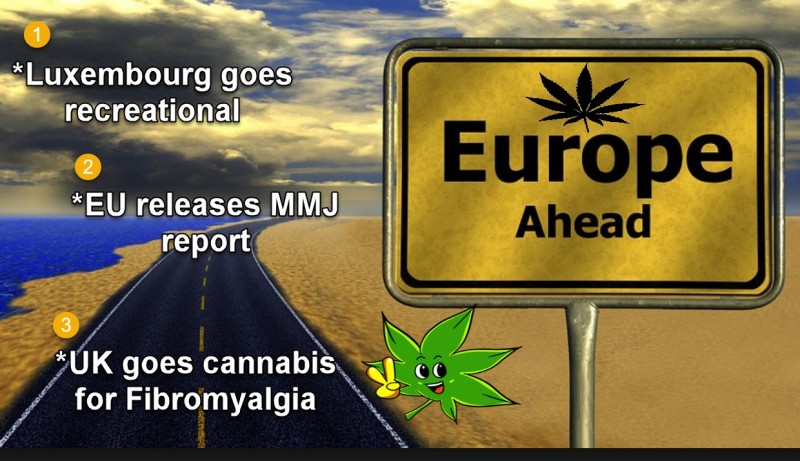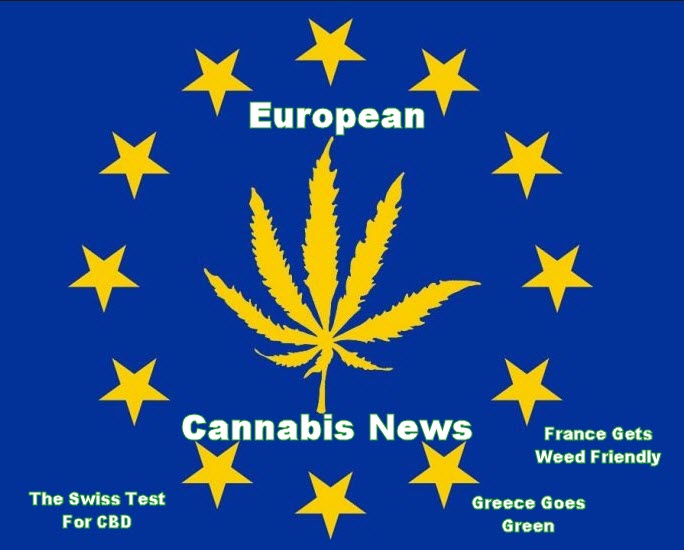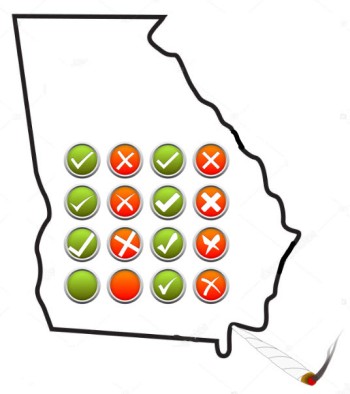What is new with cannabis legalization in Europe?
European Cannabis News
Luxembourg’s incoming government has just announced that recreational cannabis is going to be legalized. This makes Luxembourg the very first country in Europe to do so.
A handful of countries in the continent already legalize it for medicinal purposes, while others such as the Czech Republic, Netherlands, and Portugal, have decriminalized cannabis. The announcement was made during a press conference last Thursday, attended by Luxembourg’s three coalition parties: Democratic Party, The Greens, and Luxembourg Socialist Workers’ Party.
Luxembourg’s current population is just around 600,000. However, experts forecast that the legal adult-use market could be as large as 10 million provided that nonresidents would be able to partake as consumers of the drug. Luxembourg, as a member of the European Union, would also permit citizens from neighboring countries such as Belgium, Germany, and France to enter without needing a visa.
“Luxembourg will become the first country in the EU to actually legalise cannabis, as the Czech Republic, Portugal, or the Netherlands either tolerate or decriminalize it. This sends a strong message to other countries in the EU. The ice is broken,” says Bill Wirtz, policy analyst at Consumer Choice Center, a Luxembourg consumer rights group.
The move is significant, as Wirtz explains that it will be the first time the EU will have a recreational market with cannabis products containing THC, unlike Switzerland. This may also push other countries to start discussions on reforming their own cannabis laws, particularly the Dutch and the Swiss.
First UK Patient Receives Prescription Cannabis For Fibromyalgia
The United Kingdom’s medicinal cannabis movement has gone a long way this year. Earlier this month, a 32-year-old woman named Carly Barton became the first UK patient to receive medicinal cannabis for her fibromyalgia condition, following the change in local drug laws. Barton’s fibromyalgia symptoms manifested after suffering from a stroke when she was in her 20’s.
Medicinal cannabis was officially legalized on November 1, 2018. Prior to this, cannabis was a Schedule 1 substance in the UK, which, similar to US laws, means that it is seen to have no therapeutic value and for this reason could not be possessed or prescribed. Following the new laws, cannabis is now a Schedule 2 substance according to the Misuse of Drugs Regulations 2001; under this category, cannabis can already be prescribed by licensed medical practitioners to patients who qualify for certain medical conditions.
Barton expressed relief that she no longer has to turn to other sources for her medicine, whereas in the past she claimed to have been placed in dangerous circumstances just to get a hold of cannabis. “We are going to be put in a position where the rich are patients and the poor are criminals,” she said in a statement. Barton consumes around a gram of cannabis daily to help manage her fibromyalgia pain.
EU Drugs Agency Releases First Report On Medicinal Cannabis
A new report published by the EU drugs agency EMCDDA entitled, Medical Use of Cannabis and Cannabinoids: Questions and Answers for Policymaking, has just been released. The report aims to serve as a guide to European countries who are looking to develop sound policies surrounding cannabis use.
“Many EU countries now allow, or are considering allowing, the medical use of cannabis or cannabinoids in some form,” says the report. However, all countries have their own approach to cannabis, and the differences vary greatly particularly when it comes to the kinds of products allowed, and the frameworks that supervise its provision.
The report seeks to explore the diversity in practice among EU nations with the provision of cannabis for medicinal reasons, and to clear the smoke surrounding some complex issues regarding cannabis use to better support practice as well as policy and science. It also says that “medical use of cannabis and cannabinoids” can mean a lot of different things from active ingredients to the methods of administration used. It highlights the obstacles faced in decision making, and gives an insightful summary on the several issues that governments need to consider when evaluating whether both cannabis or cannabinoids should be made available for patients with medical problems. Some of these challenges include: the kinds of products that patients can use, the medical conditions for which cannabis and cannabinoids can be used, and the kind of regulatory or medical supervision needed.
European Cannabis Legalization News for This Week from CannabisNet on Vimeo.
OTHER STORIES YOU MAY ENJOY...
EUROPEAN CANNABIS NEWS UPDATE, CLICK HERE.








